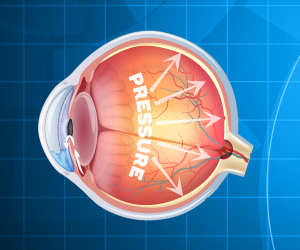Discover how the 'Period 1' gene, a key player in the body's circadian clock, aids in memory formation. Understand how the time of day influences memory consolidation.
- Researchers discovered that mice trained during the day formed stronger long-term memories than those trained at night, with the memory consolidation stage being affected by the time of day
- The 'Period 1' gene, known for its role in the circadian system, also functions independently to regulate memory in the hippocampus, affecting memory consolidation across the day/night cycle.
- The connection between the circadian clock and memory formation could provide insights into how and when people learn best
The study establishes a relationship between the circadian clock and memory development and begins to piece together the molecular pathways that aid in memory creation and retention. Understanding these pathways, as well as the impact of time of day on memory formation, may aid researchers in determining how and when people learn best.
The research is described in a publication published online in the journal Neuropsychopharmacology (1✔ ✔Trusted Source
The clock gene Per1 may exert diurnal control over hippocampal memory consolidation
Go to source).
Impact of Time on Memory Consolidation
The mice's memory was assessed using an item memory localization task that has been proven to need the dorsal hippocampus specifically. The mice are essentially exposed to two identical things in specified areas. The mice are later exposed to the objects again, but one of them has been moved. If the mice study the shifted object more than the one that remains in its original location, this indicates that they remember the previous setup."Mice that were exposed to the memory location task during the day formed stronger long-term memories than mice exposed to the task at night," said Lauren Bellfy, a graduate student in Kwapis' lab and the first author of the paper. "We were then interested to know which stage of the memory formation process was being impacted by time of day."
Long-term memory formation is frequently divided into three stages. The first stage is memory acquisition, which occurs when information is first learned. The memory must then be consolidated, which involves chemical changes in the brain that result in cellular and synaptic adaptations that store the memory. Finally, for the memory to be usable, it must be recovered at a later time.
"Memory consolidation requires active molecular changes in neurons that result in synapse growth or remodelling," said Kwapis. "These changes are driven by changes in gene activity or expression, so we isolated and sequenced all the genes being expressed in the dorsal hippocampus of mice that had been trained in the memory location task during the day or at night."
Role of the Period 1 Gene in Memory Consolidation Across the Day/Night Cycle
Many genes' activity fluctuates over the day/night cycle independently of learning or memories, thus the researchers compared the gene activity of mice trained during the day and at night to these regular oscillations. They discovered a significant increase in gene activity in animals subjected to the memory challenge during the day, whereas the expression of many fewer genes was altered in mice taught at night. Period 1 was a clock gene that was expressed at high levels during the day but decreased at night."Our lab had already been studying the role of the Period 1 gene in memory formation, but we didn't know what role this gene was playing," said Bellfy. "Here, we found evidence that Period 1 seems to regulate memory based on the time of day. When we shut down the activity of Period 1 in the dorsal hippocampus, we saw that these mice had impaired memory but most aspects of the circadian system still functioned normally."
The researchers intend to look at other genes whose activity was altered as a result of learning.
"This work shows that Period 1 plays at least two important roles in the brain," said Kwapis. "It was identified because of its role in regulating the circadian clock, but it appears to be equally important in memory formation. Understanding how memories form at this molecular level could help us to better understand memory-related dysfunctions and potentially develop ways to address them. The connection between the circadian clock and memory formation could also be important for understanding how and when people learn best."
Reference:
- The clock gene Per1 may exert diurnal control over hippocampal memory consolidation - (https://pubmed.ncbi.nlm.nih.gov/37264172/)















